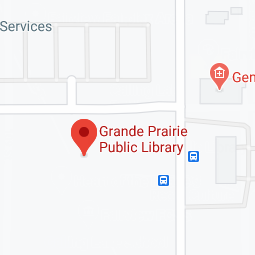Red Dress Day
Red Dress Day - National Day of Awareness for MMIWG2S (Missing and Murdered Indigenous Women and Girls).
Red Dress Day serves as a painful reminder of the ongoing genocidal crisis of missing and murdered Indigenous women, girls and 2SLGBTQQIA+ people and invites solidarity and action.
While Red Dress Day originated in Canada, the issue it represents is a global one. Observances have spread to other countries, including the United States, where it is observed as the National Day of Awareness for Missing and Murdered Native Women and Girls.
Bone black
GoldenEagle, Carol Rose, 1963- author
2019
There are too many stories about Indigenous women who go missing or are murdered, and it doesn't seem as though official sources such as government, police or the courts respond in a way that works toward finding justice or even solutions. At least that is the way Wren StrongEagle sees it. Wren is devastated when her twin sister Raven mysteriously disappears after the two spend an evening visiting at a local pub. When Wren files a missing person's report with the local police, she is dismissed and becomes convinced the case will not be properly investigated. As she follows media reports, Wren realizes that the same heartbreak she's feeling is the same for too many families, indeed for whole Nations. Something within Wren snaps and she decides to take justice into her own hands. She soon disappears into a darkness, struggling to come to terms with the type of justice she delivers. Throughout her choices, and every step along the way, Wren feels as though she is being guided. But, by what?
Forever loved : exposing the hidden crisis of missing and murdered indigenous women and girls in Canada
2016
In October 2004 Amnesty International released a report titled Stolen sisters: a human rights response to the discrimination and violence against Indigenous women in Canada, in response to the appalling number of Indigenous women who are victims of racialized and sexualized violence. This report noted over 500 missing or murdered Indigenous women. Tragically, since this initial report the numbers have risen. After conducting an extensive investigation here in Canada, in March of 2015 the United Nations Committee on the Elimination of Discrimination against Women issued their report condemning Canada for the ongoing failure to protect Indigenous women and girls calling it a "grave human rights violation" (UNCEDAW). The failure of the federal government to respond to this issue has resulted in widespread pressure from human rights groups, grassroots movements, and community leaders.
Girl gone missing
Rendon, Marcie R., author
2019
"Her name is Renee Blackbear, but most people call the nineteen-year-old Anishinabe woman 'Cash.' She drives truck for cash. She plays pool for cash. She pays with cash. Now she's in college, thanks to her mentor Sherriff Wheaton ... Turns out she's smart, real smart, but she's a duck out of water. Her classmates talk mostly about nothing, not like the working men she's known all her life ... Then Cash hears about a blonde girl in her English class gone missing. And then another. One night, after drinking beer and shooting pool, a man who claims he's her brother knocks on the door ... And, then, suddenly she's locked inside a room with the lost girls. She needs to find a way out"-- Provided by publisher.
Highway of Tears : a true story of racism, indifference and the pursuit of justice for missing and murdered indigenous women and girls
McDiarmid, Jessica, author
2019
For decades, women and girls - overwhelmingly from Indigenous backgrounds - have gone missing or been found murdered along an isolated stretch of highway in northwestern B.C. The highway is called the Highway of Tears by locals. Journalist Jessica McDiarmid offers an intimate, firsthand look at the communities along Highway 16 and the families of the victims, as well as examine the historically fraught social and cultural tensions between settlers and Indigenous peoples that underlie life in the region.
Reclaiming power and place : the final report of the National Inquiry into Missing and Murdered Indigenous Women and Girls . Volume 1
2019
"The National Inquiry’s Final Report reveals that persistent and deliberate human and Indigenous rights violations and abuses are the root cause behind Canada’s staggering rates of violence against Indigenous women, girls and 2SLGBTQQIA people. The two volume report calls for transformative legal and social changes to resolve the crisis that has devastated Indigenous communities across the country. The Final Report is comprised of the truths of more than 2,380 family members, survivors of violence, experts and Knowledge Keepers shared over two years of cross-country public hearings and evidence gathering. It delivers 231 individual Calls for Justice directed at governments, institutions, social service providers, industries and all Canadians. As documented in the Final Report, testimony from family members and survivors of violence spoke about a surrounding context marked by multigenerational and intergenerational trauma and marginalization in the form of poverty, insecure housing or homelessness and barriers to education, employment, health care and cultural support. Experts and Knowledge Keepers spoke to specific colonial and patriarchal policies that displaced women from their traditional roles in communities and governance and diminished their status in society, leaving them vulnerable to violence. "-- Missing and Murdered Indigenous Women and Girls website.
Stolen sisters : the story of two missing girls, their families and how Canada has failed indigenous women
Walter, Emmanuelle, 1969- author
2015
Surviving the city. Volume 1
Spillett-Sumner, Tasha, 1988- author
2018
Tasha Spillet's graphic-novel debut, Surviving the city, is a story about womanhood, friendship, resilience, and the anguish of a missing loved one. Miikwan and Dez are best friends. Miikwan's Anishinaabe; Dez is Inninew. Together, the teens navigate the challenges of growing up in an urban landscape - they're so close, they even completed their Berry Fast together. However, when Dez's grandmother becomes too sick, Dez is told she can't stay with her anymore. With the threat of a group home looming, Dez can't bring herself to go home and disappears. Miikwan is devastated, and the wound of her missing mother resurfaces. Will Dez's community find her before it's too late? Will Miikwan be able to cope if they don't? Colonialism and the issue of Missing and Murdered Indigenous Women, Girls, and Two-Spirit People are explored in Natasha Donovan's beautiful illustrations.
Violence against Indigenous women : literature, activism, resistance
Hargreaves, Allison, author
2017





